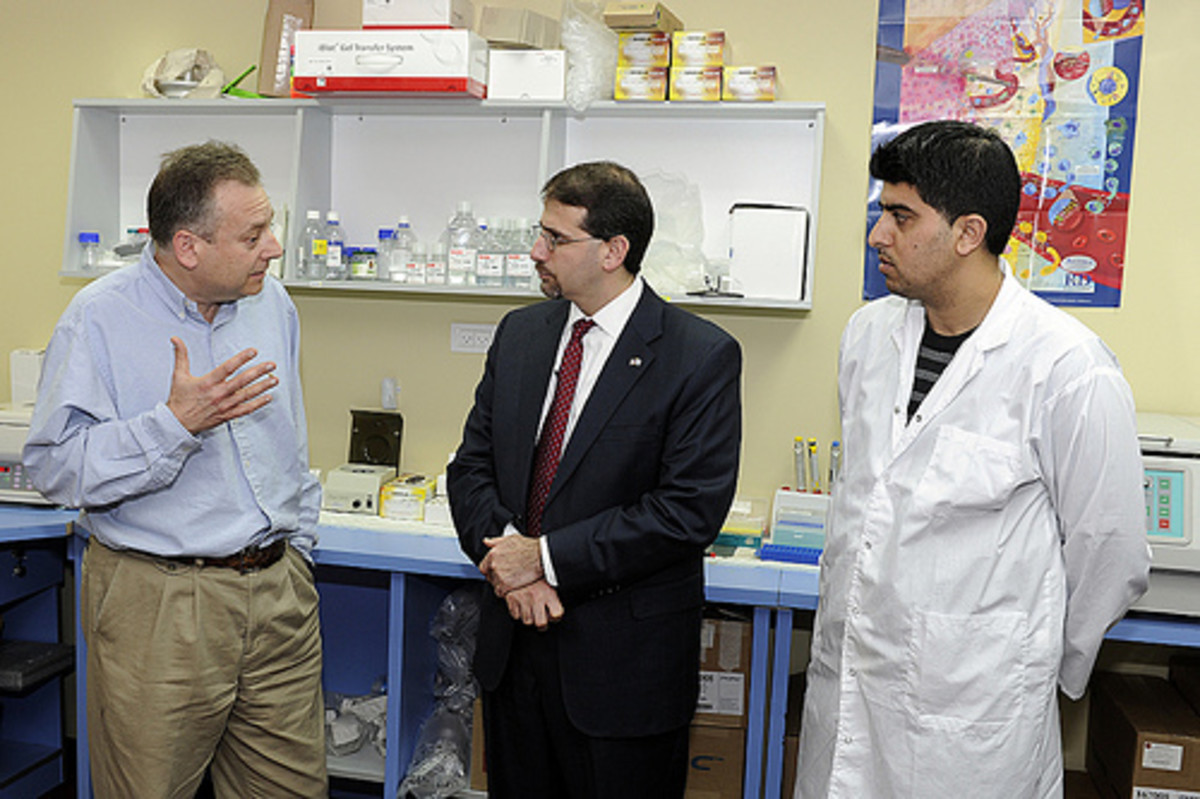Viral Implosion - chapter nine

Retired General Kahler, now Secretary of Defense, and Mike Freeman were enjoying lunch at Fiola, swilling scotch and lounging afterward with Cuban cigars.
Mike felt totally relaxed, not having to make any pretenses to the public. “Well, after fifteen years of struggle, manipulation and breath-holding, I think it’s fair to say we have reached our goals. Are you finding it less stressful in the White House?”
“Undoubtedly. President Schmid gets dizzy when the cabinet meets and starts reviewing complex ramifications of an action. Eventually he just accepts the advice of his most senior secretary on whatever topic it is. He has the cabinet down to four individuals and each one is well versed on the people to be taken care of. And we have one great spin doctor for the whole administration, so there is always consistency. People need consistency.”
“Among other things. We finally have an even feed of information for the public. Our news groups handle the unemployment by bragging that everything is now made in America and by offering jobs at the new manufacturing cities. I tell you, Hershey had the right idea – give them everything they need and no more. I don’t agree with his idea to prepare everyone for an alternative job, though. Better they know only one thing and don’t know there are alternatives; it just confuses the masses, especially the children. Higher education needs to be only for those being groomed for control positions.”
The sentiments of these two men were being echoed throughout the military/political/industrial complex. One manufacturer would own not only its manufacturing plant, but the supply line for its products, and even an oil or rail company to keep the supply line steady. This helps keep prices steady. With countries isolating themselves from other countries, global economy was now national economy. Profit margins were at an all-time high, so if inflation could be held to a minimum (if not a complete standstill), existing industries could coast to the finish line. Competition would only force prices down, thereby upsetting the lovely apple cart they had going, so cooperation became the byword of this era. Doctors owned hospitals, pharmaceutical companies, insurance companies and ambulance companies. Many influential lawyers were promoted into political positions. Who better to know what laws still existed, which needed to be repealed and which needed to be passed? Grocery cartels managed not only the stores, but the farms and ranches that supplied them, and the packaging plants and slaughter houses that distributed the food.
There was less and less of a surplus of the lower-income population, as the government let it shrink by attrition. Lack of access to medical help cost thousands of unnecessary lives daily. The reluctance of attorneys to take on lost causes cleared a lot of court dockets.
The stock market quieted down on a domestic level, since no more major shifts in the local economy were expected. Instead, investors watched the other countries to see how they were handling the situation. Invest in countries following American moves. Divest in anything owned by dangerous or militant countries such as Red China and Russia. Any country that was in a state of riot (mainly the Mideast and Africa) lost all financial support. Investors watched South America carefully. Politics there were pretty volatile, but there was also a great deal of produce that would eventually be of value to the United States; man cannot live on beef and corn alone. So money would be directed to those groups, whether incumbent or rebellious, that were interested in currying American favor.
Technology and the Internet were still a little dicey. In an effort to stop attacks of ransomware, computing experts were paid at the level of a CEO. Information technology departments were larger than ever, and were involved not only in streamlining operations, but entire separate departments were devoted to hacking the hackers, who, when caught, were imprisoned for life. On occasion these hackers were then recruited to work for a corporation, political party or military installation, an appealing alternative with a hefty paycheck. A third IT department existed in most companies to parse the huge shared databases being compiled and find ways to use the information to further manipulate society.
Abe Feldman found plenty of work in an advisory capacity on stocks, bonds and futures, based on his successful experience. Esther managed to get on a few Boards of Directors. This enabled those companies to get a feel for Abe’s directions, while giving her a chance to keep an eye on Abe’s money. It wasn’t a dream job, but at least she got out of the house and got to rub elbows with influential women, who would share tricks of the trade. The $200,000 salary for each of her chairs kept Esther happy and busy. And because so many companies were owned by a single parent company, it was easy to move back and forth on different boards. This made Esther of great value to her husband, who needed to know the plans and intentions of the various companies. “Insider trading” was an obsolete term. This new relationship between the two helped bolster the marriage and keep the family demands within reason.
Billy Silver did not fare quite as well. Mr. Valenza finally closed his doors. Billy’s tiny IRA would not support his family. Fortunately his many years in the grocery business made him eligible for work in that area. He attended a job fair and got an offer. The salary was small, but they offered housing and reasonable prices for essential products if he was willing to leave Long Island. Because of the high competition for employment, Billy only had one day to decide. With the entire household at the kitchen table they weighed their options. Monica and Mom would have to give up their jobs. The mortgage was a little more than half paid off, but there was no equity in the house – the real estate market on Long Island had given up the ghost; they would be lucky to get less than they owed, if they could sell the house at all. The kids were included in the discussion because they would be ripped away from all things familiar and their friends, so precious during adolescence. Against human nature, this would mean a total change of everything they knew. On the plus side, it was a job, with a contract, so there was a minimum of security. In a new community, there would be ‘minimum-wage’ jobs (although there was no longer a legal minimum wage) available for the women and after school for the boys. The company would supply a moving van and team. Like military housing, almost every position in the community was open for families of employees first, rather than importing more employees and their families. So there were jobs available for trash removal, reception, cashiering, and any other essential service. The three-bedroom row houses would not cost anything, since the company owned them. So if all five of them worked, they could sustain the mortgage on the Long Island home until the real estate market opened up again, at least for a short while. Billy couldn’t take advantage of the IRA for another fifteen years, but when it was available it would help. The boys had already realized that college was a pipe dream, so they were looking for a trade to adopt. It wasn’t really a choice, but at least the whole family took a stake in the decision. The next morning Billy accepted the job offer. Ohio, here we come!
Within a week, the Silver family was packed. There were a few families hired, so three families would be loaded into one van. The families could drive over on their own; by the time they arrived, the houses would be assigned and their belongings unloaded. It took a week to drive there and they arrived on a Friday night. A sentry at the entry of the community looked up the names and gave them directions to their new home. Nothing was placed where Monica wanted it, but at least their food had been moved as well, so they could spend the weekend getting reasonably settled. On the kitchen table was a small stack of papers informing them of their situation. The three children were to start school Monday morning, and Billy was to report to work the same day. Monica and Mom spent Monday searching out a grocery store and getting an idea of the layout of the community. Tuesday they were out applying for jobs. The children made the adjustment better than expected, since all their classmates were in the same situation – it was a town of strangers rather than history.









